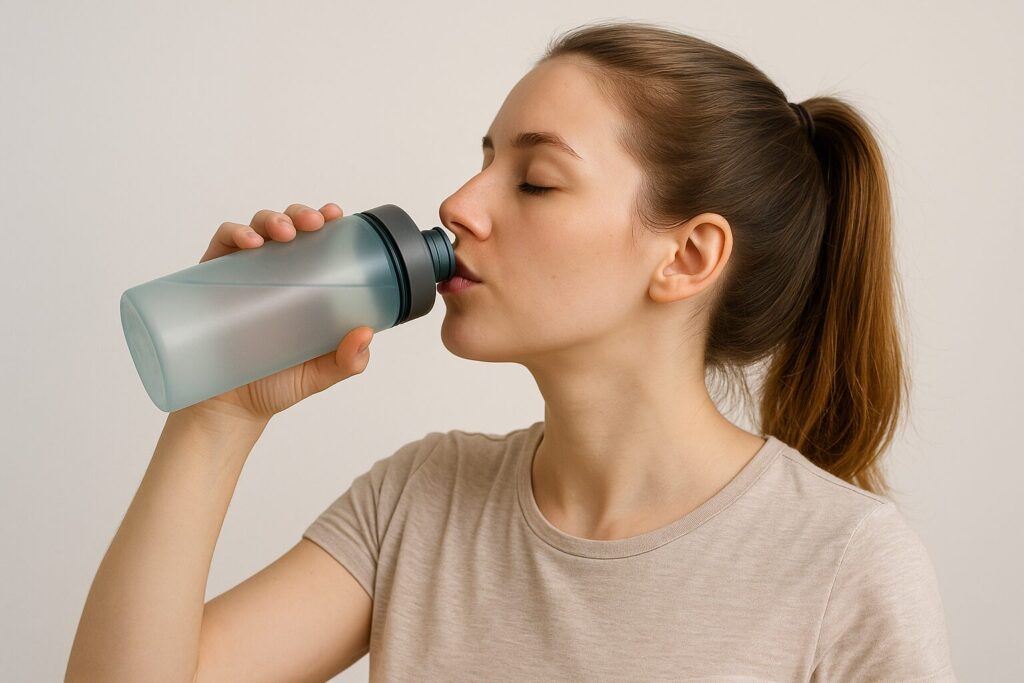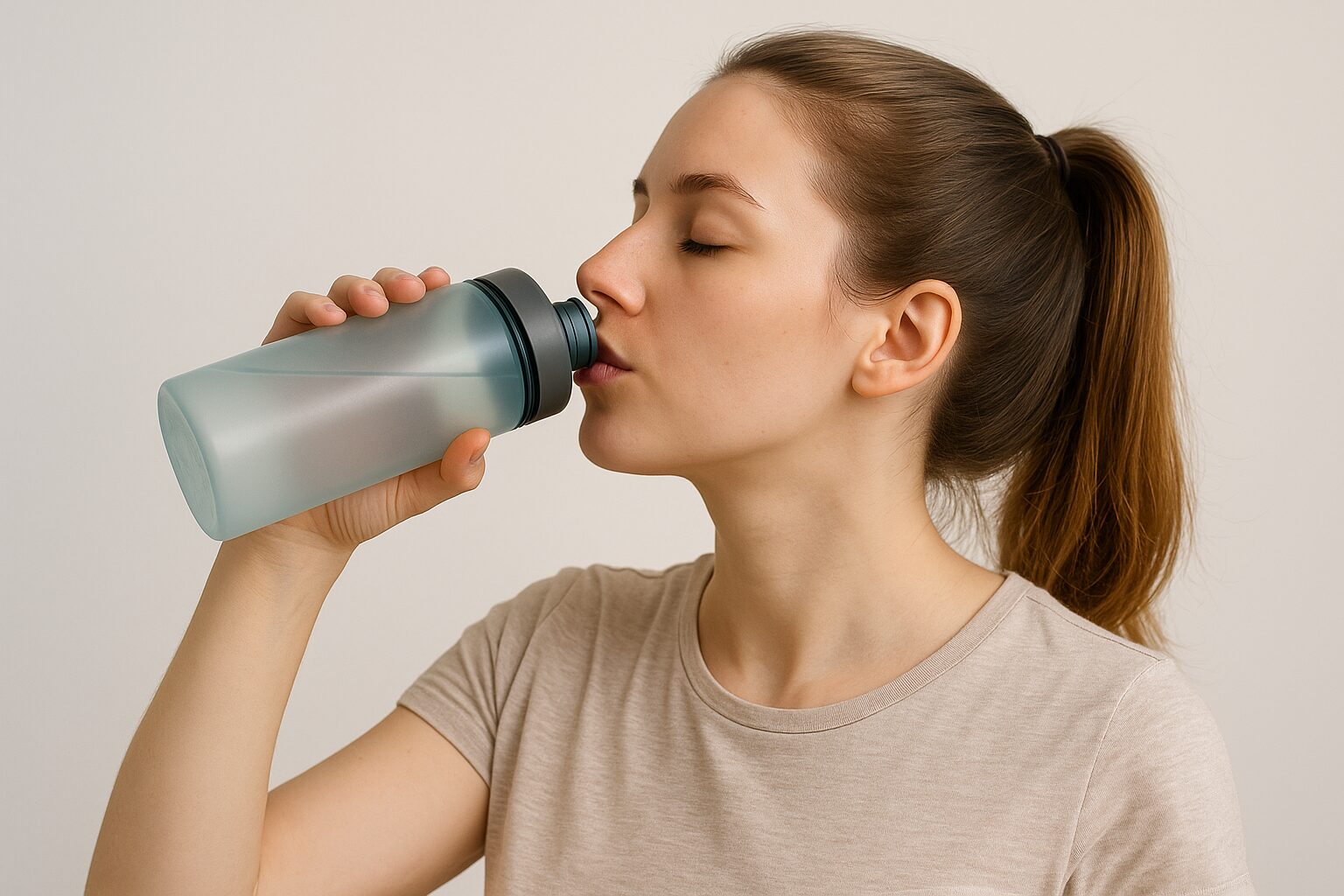Water makes up a large portion of the human body and is essential for health. Yet many people forget to drink enough throughout the day. Dehydration may cause fatigue, headaches, poor concentration, or dry skin. Building daily water-drinking habits can help maintain energy, focus, and overall wellness. Here are five practical strategies.

1. Start the Morning with a Glass of Water
Drinking water right after waking may replenish fluids lost overnight and stimulate metabolism. A warm glass of water is often recommended, as it may support digestion and prepare the body for the day.
2. Set Reminders
Busy schedules make it easy to forget hydration. Using smartphone alarms or smartwatch reminders every one to two hours may encourage steady intake. Over time, the body may naturally adjust to expect water at regular intervals.
3. Keep Water Visible
Placing a water bottle on a desk, in a bag, or in the car makes it easier to drink frequently. Transparent bottles with measurement marks may help track progress toward daily goals.
4. Track Intake
Recording daily water consumption through apps or journals may boost motivation. Some bottles come with time markings, encouraging consistent drinking throughout the day.
5. Link Water to Daily Routines
Pairing hydration with specific actions, such as before meals, after using the restroom, or during breaks, may help form automatic habits. This approach, often called “habit stacking,” can make water intake a natural part of life.
🍀
Hydration habits are simple but powerful for health. Starting the day with water, setting reminders, keeping bottles nearby, tracking intake, and linking drinking to routines may reduce dehydration risks and support energy, skin, and concentration.
References and Further Reading
World Health Organization (WHO) – Daily Water Intake Guidelines
National Institutes of Health (NIH) – Hydration and Health
Harvard Health Publishing – Importance of Daily Hydration
※ This article is for general informational purposes only. Water needs may vary by age, activity level, and climate. Professional guidance is generally recommended for personalized advice.
